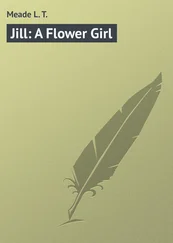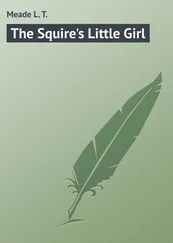L. Meade - A Sweet Girl Graduate
Здесь есть возможность читать онлайн «L. Meade - A Sweet Girl Graduate» — ознакомительный отрывок электронной книги совершенно бесплатно, а после прочтения отрывка купить полную версию. В некоторых случаях можно слушать аудио, скачать через торрент в формате fb2 и присутствует краткое содержание. Жанр: foreign_prose, foreign_children, на английском языке. Описание произведения, (предисловие) а так же отзывы посетителей доступны на портале библиотеки ЛибКат.
- Название:A Sweet Girl Graduate
- Автор:
- Жанр:
- Год:неизвестен
- ISBN:нет данных
- Рейтинг книги:5 / 5. Голосов: 1
-
Избранное:Добавить в избранное
- Отзывы:
-
Ваша оценка:
- 100
- 1
- 2
- 3
- 4
- 5
A Sweet Girl Graduate: краткое содержание, описание и аннотация
Предлагаем к чтению аннотацию, описание, краткое содержание или предисловие (зависит от того, что написал сам автор книги «A Sweet Girl Graduate»). Если вы не нашли необходимую информацию о книге — напишите в комментариях, мы постараемся отыскать её.
A Sweet Girl Graduate — читать онлайн ознакомительный отрывок
Ниже представлен текст книги, разбитый по страницам. Система сохранения места последней прочитанной страницы, позволяет с удобством читать онлайн бесплатно книгу «A Sweet Girl Graduate», без необходимости каждый раз заново искать на чём Вы остановились. Поставьте закладку, и сможете в любой момент перейти на страницу, на которой закончили чтение.
Интервал:
Закладка:
It did. The other students who lived in the same corridor came to visit Priscilla in the free and easy manner which characterised them, and made remarks the reverse of flattering. When was she going to put her pictures up? Miss Day would be delighted to help her whenever she chose to do it. When did she intend to go down to Kingsdene to order her easy-chairs and little Japanese tables, and rugs, and the other small but necessary articles which would be required to make her room habitable?
For several days Priscilla turned these inquiries aside. She blushed, stammered, looked awkward, and spoke of something else. At last, however, she summoned up courage, and, once for all, delivered herself from her tormentors. She did that remarkably brave thing which sometimes very nervous people can brace themselves to do.
It was evening, and Miss Day, Miss Marsh, and Nancy Banister had all come in for a few minutes to see Priscilla on their way to their own rooms.
“Do come and cocoa with me to-night, Miss Peel,” said Miss Day. “You’re so dreadfully unsociable, not a bit like an ordinary St. Benet’s girl. If you go on in this fashion you’ll be moped to death before your first term is over.”
“I am accustomed to a very quiet life,” responded Priscilla, “and I want to work; I have come here to work.”
“Dear, dear! anyone would suppose you were going in for a tripos. If this were your last term I could understand it – but your first!”
It was Miss Marsh who said these words. She was a bright-eyed, merry-looking girl, the reverse of over-studious herself.
“Oh, come along, dear: I’ll give you such a delicious cup of cocoa,” said Miss Day.
She crossed the room, and tried to link her hand affectionately in Prissie’s arm. Miss Peel drew back a step.
“Thank you,” she said, “but I – I – cannot come.”
“I must say you have a blunt way of refusing,” said Miss Day. She felt inclined to be offended, but Nancy Banister, who was standing by, and had not hitherto spoken, bestowed a quick glance of approval on Priscilla, and then said something soothing to Miss Day.
“May I cocoa with you instead, Annie?” she said. “I am afraid no one can accuse me of killing myself with work, but we all respect earnest workers – we must. It is for them St. Benet’s is really meant. It was endowed for them, and built for them, and we poor drones must not throw disparaging remarks on the busy bees.”
“Oh, nonsense!” said Miss Marsh; “St. Benet’s was made for sociability as well as study, and I have no patience with the students who don’t try to combine the two. By the way,” she added, turning round, and speaking in a rather impertinent voice to Priscilla, “I sent you a message to say I was going down to Kingsdene this afternoon, and would be happy to take you with me if you would care to visit Spilman’s.”
“Thank you,” said Priscilla, “I got your note just too late to answer it. I was going to speak to you about it,” she added.
“Then you would have come?”
Priscilla’s face grew very red.
“No, I should not have come.”
It was Miss Marsh’s turn to get red.
“Come! Annie,” she exclaimed, turning to Miss Day, “we had better waste no more time here. Miss Banister, we’ll see you presently, won’t we? Good-night, Miss Peel. Perhaps you don’t mind my saying something very frank?”
“I do,” said Priscilla, “but that won’t prevent your saying it, will it?”
“I don’t think it will. After you have been at St. Benet’s a little longer you will know that we not only appreciate cleverness and studious ways, but also obliging and sociable and friendly manners; and – and – pretty rooms – rooms with easy-chairs, and comfortable lounges, and the thousand and one things which give one a feeling of home. Take my advice, Miss Peel, there’s no use fighting against the tide. You’ll have to do as others do in the long run, and you may as well do it at once. That is my plain opinion, and I should not have given it to you, if I had not thought you needed it. Good-night.”
“No, stop a minute,” said Priscilla. Every scrap of colour had left her face, every trace of nervousness her manner. She walked before the two girls to the door, and closed it. “Please stay just for a minute longer, Miss Day and Miss Marsh, and you too, Miss Banister, if you will.”
She went across the room again, and, opening the top drawer of her bureau, took out her purse. Out of the purse she took a key. The key fitted a small padlock, and the padlock belonged to her trunk. She unlocked her empty trunk and opened it.
“There,” she said, turning to the girls – “there,” she continued, “you will be good enough to notice that there are no photographs concealed in this trunk, no pictures, no prints.” She lifted the tray. “Empty, you see,” she added, pointing with her hand to the lower portion of the trunk – “nothing here to make my room pretty, and cosy, and home-like.” Then she shut the trunk again and locked it, and going up to where the three girls stood, gazing at her in bewilderment and some alarm, she unfastened her purse, and turned all its contents into the palm of her hand.
“Look, Miss Marsh,” she said, turning to the girl who had spoken last. “You may count what is here. One sovereign, one half-sovereign, two or three shillings, some pence. Would this money go far at Spilman’s, do you think?”
Priscilla put it all slowly back again into her purse. Her face was still absolutely colourless. She laid the purse on the top of her bureau.
“I do not suppose,” she said, in a low, sad voice, “that I am the sort of girl who often comes to a place of this sort. I am poor, and I have got to work hard, and I have no time for pleasure. Nevertheless,” she added – and now a great wave of colour swept over her face, and her eyes were lit up, and she had a sensation of feeling quite glad, and strong, and happy – “I am not going away because I am poor, and I am not going to mind what anyone thinks of me as long as I do right. My room must stay empty and bare, because I have no money to make it full and beautiful. And do you think that I would ask those – those who sent me here – to add one feather’s weight to their cares and expenses, to give me money to buy beautiful things because I am afraid of you? No, I should be awfully afraid to do that; but I am not afraid of you.”
Priscilla opened the drawer of her bureau and put her little light purse back again in its hiding-place.
“Good-night, Miss Peel,” said Miss Day, in a thin, small kind of voice.
“Good-night, Miss Peel,” said Miss Marsh. The girls went gently out of the room. They closed the door behind them, without making any noise. Nancy Banister remained behind. She came up to Priscilla, and kissed her.
“You are brave,” she said. “I admire you. I – I – am proud of you. I am glad to know that a girl like you has come to live here.”
“Don’t – don’t,” said poor Prissie. Her little burst of courage had deserted her. She covered her face with her trembling hands. She did not want Nancy Banister to see that her eyes were full of tears.
Chapter Seven
In Miss Oliphant’s Room
“My dear,” said Nancy Banister that same evening – “my dear and beloved Maggie, we have both been guilty of a huge mistake.”
“What is that?” asked Miss Oliphant. She was leaning back in a deep easy-chair, and Nancy, who did not care for luxurious seats, had perched herself on a little stool at her feet. Nancy was a small, nervous-looking person; she had a zealous face, and eager, almost too active movements. Nancy was the soul of bustling good-nature, of brightness and kindness. She often said that Maggie Oliphant’s laziness rested her.
Читать дальшеИнтервал:
Закладка:
Похожие книги на «A Sweet Girl Graduate»
Представляем Вашему вниманию похожие книги на «A Sweet Girl Graduate» списком для выбора. Мы отобрали схожую по названию и смыслу литературу в надежде предоставить читателям больше вариантов отыскать новые, интересные, ещё непрочитанные произведения.
Обсуждение, отзывы о книге «A Sweet Girl Graduate» и просто собственные мнения читателей. Оставьте ваши комментарии, напишите, что Вы думаете о произведении, его смысле или главных героях. Укажите что конкретно понравилось, а что нет, и почему Вы так считаете.












